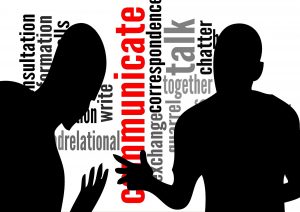Q: It was a very unusual job interview, I felt. Every time I told a story in response to a question, they pushed me to elaborate more on the result of the story. I didn’t really know what to say. A story is a story. I told them what I did and gave a general idea of how it went, and I felt that should have been more than enough. I didn’t get the job. Any thoughts on how to get the best results in a job interview ? (EF, email).
A: Diagnosing an interview from a few sentences is akin to assessing a suntan over the phone but forgive me if I suggest that the panel may have been trying to help you.
The failure to properly outline results of stories is perhaps the most common failing I encounter when working with candidates preparing for job interviews. Stories need results, and we should have those well prepared for our interviews.
Tell your story
By result, you might wonder what I mean – well, it could be that you tell a story about how you changed something within your company e.g., to speed up a production process. Candidates often get deep into the story, what they did and how, but regularly fail to depict the actual value (i.e., the result) of their intervention.
In a case like that, a candidate should relay how much time, money or hardship was saved. How many people benefitted? Was there an impact on the bottom line? Were people freed up to do other tasks? Was it better for customers?
Quantify results
All of that can be difficult to quantify but it’s worthwhile to think it through as best you can. If you can give facts and figures, your stories reach a whole other level. And I suspect the interview panel were willing you to yield the absolute best from your story.
You didn’t just improve a process – you delivered something of real value to the company. If you can prove this in a compelling fashion, you present yourself as someone who can deliver similar value in the new role. When an interview panel is probing, they’re not always trying to catch you out – they might instead be trying to help you up.
It can be difficult to look at our work in this way. How we go about our work works best in a job interview. But this is what you must do to help the panel see your suitability for the role based on your experiences to date.
However, I have seen candidates really prosper when they understand how to quantify results. They can point to actual cost savings or enhanced profit margins that accrued from their interventions. They might even have received awards or letters of commendation that verify their claims – needless to say, those are pure gold dust in interviews.
Reflecting on our careers often brings to mind achievements we have forgotten. Take time to look back over things, see what you might be omitting or understating and bring the relevant parts into the interview room with you. You are the greatest living expert on your own career. Mine your knowledge for maximum impact.
You get one shot. Make the most of it. You’ve got to make the strongest case for yourself because nobody else will do it for you.
Need interview training? Go HERE
Featured image courtesy of Pixabay.
Need our help? Complete this form below and we will get back to you





